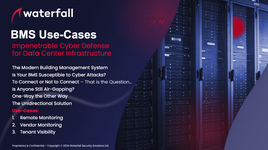Companies from all sectors spend a copious amount of time and money in storing, analysing, and protecting data from customers, employees, partners and stakeholders. In fact, according to one Forbes commentator 95 percent of businesses cite the need to manage unstructured data as a problem for their business. It’s no surprise then that British mathematician Clive Humby’s 2006 observation that ‘data is the new oil’ feels incredibly prescient.
This data is used to fuel decision-making, to better understand customers and to enable large scale digital transformation. However, like oil, when data leaks, it is dangerous and costly, resulting in financial, reputational and privacy damage. That’s why we have jurisdictions around the world implementing data protection legislation, such as GDPR in the EU and the California Consumer Privacy Act, which requires companies to protect the personal data of individuals living in those jurisdictions.
The challenge is that meeting and maintaining data compliance can be difficult; those responsible must spend considerable time and effort ensuring their systems adhere to legal requirements and that their data is safe from leakage.
Rolling the dice
With any oil spill, there are immediate questions surrounding accountability, probability and prevention. And when it comes to data leaks, similar responses are to be expected. Customers are uncomfortable and at risk when their own digital ‘oil’ gets leaked for anyone to access and exploit. So, it’s not just financial punishment in the form of fines that companies need to worry about, it’s the very real possibility of irredeemable reputational damage. Nevertheless, many companies are still willing to roll the dice and neglect their compliance-related duties.
Introducing compliance automation
This is where automation comes into play; if you can automate the vast majority of that time-consuming due diligence without compromizing your compliance status, you can free up resources for business-critical projects.
Compliance automation helps eliminate traditional manual spreadsheets which are prone to human error, can integrate with risk management procedures, and ensure compliance over time to reduce the likelihood of encountering compliance fines or breaches. Companies can breathe easy knowing an automated process will continuously monitor the safety of their data.
Meeting changing legislative demands
When processing, storing and shipping oil, you must ensure that the pipes, containers and ships are up to industry standards. Likewise, with data: companies must be vigilant in collecting, storing and processing it, according to the relevant standard or government legislation. However, the legal landscape is always changing, with new clauses and financial penalties for violations, making it difficult for compliance teams to keep up.
Automation can play a significant role here. Traditionally, these teams would spend vast amounts of time searching for risks or updating systems to comply with new legislation. Now, the organization has a powerful tool in its arsenal that is more time and cost-effective compared to otherwise manual controls.
Moreover, compliance teams can access and view their compliance status and audit information within a single unified dashboard and take action to make risk management decisions based on the data in real time. The time and money saved allows the company to focus on the core of its business and deliver excellent customer service without compromizing on its security.
The future of compliance
Regulatory requirements around audit, risk and compliance are continually evolving, and it’s not uncommon for GDPR breaches to stem from either insecure or illegal measures to properly safeguard personal data or a failure to continuously monitor security controls, and oftentimes it’s a combination of both. Furthermore, tougher operational resilience regulation in the UK and the EU will for the first time punish financial institutions for potential risk. The Financial Conduct Authority (FCA) in the UK is ramping up their enforcement actions and has put a three-year transitional period in place for firms to become compliant. A failure to prepare will be costly.
No company wants to be the face of the next data breach, or crippling penalties. In a world where data is the new oil, it's time that companies took a step back to understand what that means. Yes, it is a fuel source in a manner of speaking, helping companies to achieve massive transformation, and build better customer relations. But it is also a volatile, highly sought-after resource, and if it leaks, it will contaminate the business ecosystem for years to come. So, if you genuinely want to secure the data at your disposal, make sure it's compliant and sealed or face the price of a leak.





